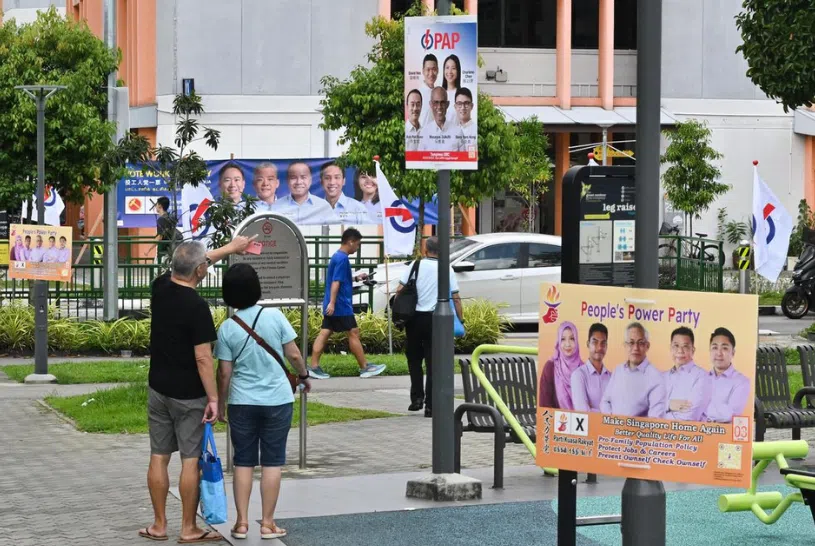[SINGAPORE] The day before Polling Day is known as Cooling-off Day, during which campaigning activities and election advertising are not allowed.
This period of campaign silence starts on Friday (May 2), after midnight, and ends only after polls close on Polling Day on Sat (May 3). It is intended to give voters time to reflect on issues raised during the campaign period, before casting their vote.
Introduced in 2010, Cooling-off Day was first observed in the 2011 General Election. These rules during the cooling-off period apply to all, including voters, candidates and election agents.
This is part of a series of explainers and listicles The Straits Times has put together ahead of the polls.
Here is the list of what is allowed – and not allowed – during the cooling-off period.
No: Publishing of fresh election advertisements
BT in your inbox

Start and end each day with the latest news stories and analyses delivered straight to your inbox.
Publishing or publicly displaying new election advertisements, or making changes to any existing ads, are not allowed on Cooling-off Day and Polling Day. This applies to both online and non-online forms of election advertisements.
Online election advertising refers to any material published online that can be reasonably regarded as intended to promote, procure, or prejudice the electoral success or prospects for political parties or candidates. Such material can also be to enhance or prejudice parties or candidates’ standing in connection with any election.
These rules also apply to resharing, reposting and boosting of online content, and applies to all paid or unpaid content.
The public display of traditional forms of election advertising, such as banners, flags or posters, are also prohibited, unless they were published before the start of the cooling-off period.
Political parties are also not allowed to conduct programmatic advertising, such as using technology to automatically deliver online ads.
No: Conducting of house visits or walkabouts
Candidates are not allowed to conduct any campaigning activities including walkabouts, door-to-door visits, canvassing of votes and distribution of flyers during this period.
The use of vehicles for campaigning is also not allowed.
No: Wearing or displaying campaign propaganda
No one is allowed to wear, carry or display campaign symbols or materials – such as on banners, t-shirts or badges – that promote a candidate or political party.
Only candidates may wear a replica of their party’s symbol.
No: Holding election meetings or attending public events
Gatherings, rallies or public meetings where candidates or parties address voters are not allowed.
The public is also not allowed to attend events that are being held for election purposes.
Yes: Campaign materials can remain
Banners, flags, posters and online election-related content put up before the cooling-off period may remain in place.
Yes: News outlets publishing election-related articles
Licensed media organisations can continue publishing election-related news reports in newspapers, on radio, or on television during the cooling-off period. But these reports must not amount to election advertising.
Yes: Sharing of personal political views privately
Private, non-commercial sharing of personal political views and content between individuals is allowed.
This includes private conversations, text messages and direct messages, within a private chat or closed group with family or friends, as long as they are not intended for public broadcast or mass dissemination.
Group chats or channels on messaging platforms, such as WhatsApp or Telegram, must not be used to publish election ads. THE STRAITS TIMES
For more election coverage, visit our GE2025 microsite.


